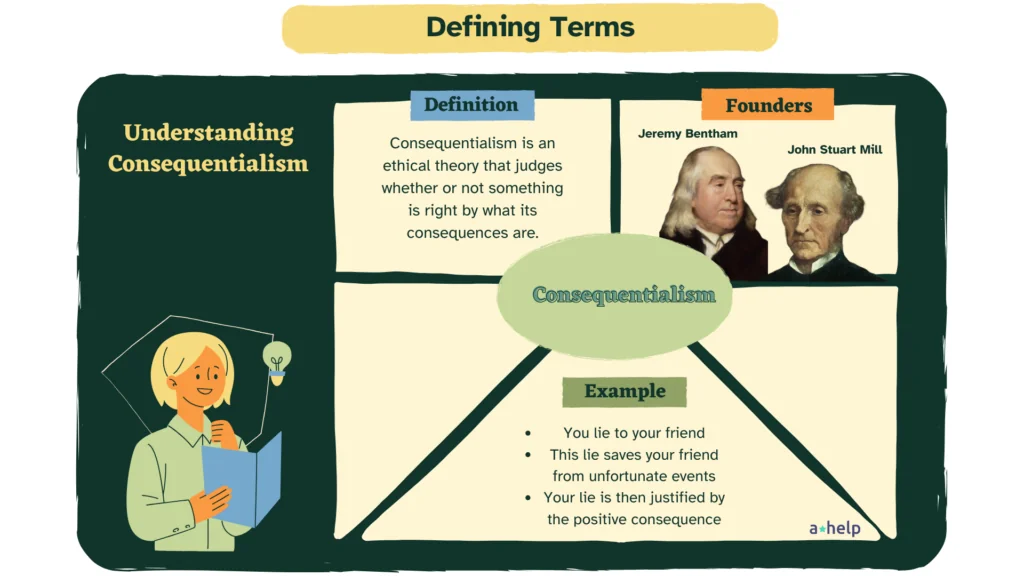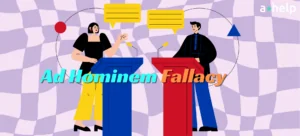The phrase “the end justifies the means” suggests that the outcome of an action can render the methods used to achieve it acceptable, regardless of how morally questionable these methods might be. It implies that if a goal is deemed important enough, any method of reaching it is permissible, even if those methods are unethical or harmful. This concept is often debated in moral philosophy, where the consequences of actions are weighed against the means used to achieve them.

✅ AI Essay Writer ✅ AI Detector ✅ Plagchecker ✅ Paraphraser
✅ Summarizer ✅ Citation Generator
Origin of the Phrase
The phrase “The End Justifies the Means” is often linked to Niccolò Machiavelli, a pivotal figure in Renaissance political thought. His work, particularly “The Prince,” written in the 16th century, is seen as a foundational text in political realpolitik.

Although Machiavelli himself never explicitly used this exact phrase, his writings implied this principle. He argued that for a ruler, the acquisition and maintenance of power could involve morally questionable actions, but these actions are justified if they help in achieving a stable and effective state. This approach broke from the idealistic and moralistic views of governance that preceded him, suggesting a pragmatic, sometimes ruthless, perspective on political leadership. Machiavelli’s ideas reflected an early form of consequentialism – a belief that the result of an action holds the ultimate importance in determining its moral worth. In his view, the success and stability of a state are the ultimate goals, and the means to achieve these ends, whether ethical or not, are secondary.
Main Ideas and Implications
The phrase “The End Justifies the Means” embodies a fundamental principle of consequentialism. This ethical theory suggests that the morality of an action is entirely dependent on its consequences. It’s a perspective that looks at the end result of an action to determine its ethical value, contrasting sharply with deontological ethics. Deontology, on the other hand, posits that certain actions are inherently right or wrong, regardless of their outcomes.

The consequentialist view, as encapsulated by this phrase, argues that if an action leads to a positive or ethically significant result, then the methods employed to achieve it can be justified, even if those methods are morally ambiguous or objectionable in themselves. This principle challenges the conventional moral framework by suggesting that the morality of actions is fluid, depending on their outcomes. It raises profound questions about the nature of morality and ethics. For instance, in situations where the achievement of a greater good might involve compromising on certain ethical principles, does the anticipated positive outcome make such compromises acceptable? This debate sits at the heart of many ethical dilemmas faced in various aspects of life, from personal decisions to global politics, and continues to provoke thought and discussion on the nature of moral action and ethical reasoning.
Modern Applications and Debates
The phrase “The End Justifies the Means” finds its resonance and contentiousness echoed in various contemporary arenas. In the political landscape, especially noticeable during election cycles, candidates and parties often face the ethical conundrum of whether employing deceptive strategies to secure votes is justifiable. This issue is not just a matter of political ethics but also touches on the broader implications for democratic integrity. If a political leader secures success through dishonest means, does their potential to effect positive change validate their actions?
In the business world, ethical debates often focus on practices like embellishing qualifications on a resume or adopting a ‘fake it ’til you make it’ attitude. This raises questions about professional integrity. Is achieving career success or corporate growth by misrepresenting oneself or one’s company justifiable if it leads to beneficial results for individuals or stakeholders?
Sports is another field where this moral conflict is evident. Instances of athletes or teams cheating to win, whether through performance-enhancing drugs or other unfair means, pose a significant ethical dilemma. Is the glory of victory worth the cost of compromised sportsmanship and integrity? These modern scenarios, each in their own way, highlight the complex and often controversial application of the principle that the ends can justify the means, underscoring its continued relevance and the debates it sparks in contemporary society.
What About the Moral Controversy?
The moral controversy surrounding “The End Justifies the Means” fundamentally challenges traditional concepts of moral behavior and ethical philosophy. This phrase often stands at odds with ethical theories such as deontological ethics, which asserts the inherent morality or immorality of actions, and virtue ethics, which focuses on the moral character of the individual rather than the consequences of their actions.
The consequentialist viewpoint inherent in this phrase suggests that the ultimate goal or outcome of an action can render ethically questionable methods acceptable. This perspective leads to varied and often conflicting interpretations of moral implications in real-life situations. For instance, lying on a first date to make a good impression, or fabricating a narrative to avoid conflict, are judged differently when viewed through the lens of consequentialism. These actions might achieve a seemingly positive result, but they conflict with the fundamental principles of honesty and integrity upheld by other ethical theories.
This philosophical divide is not just academic but has real-world implications. It affects how individuals and societies evaluate moral decisions and ethical considerations. The concept of achieving a greater good through morally ambiguous means challenges our understanding of what constitutes moral action, pushing us to reevaluate the balance between ends and means in our ethical reasoning. This ongoing debate reflects the complexities and nuances of moral philosophy, highlighting the diversity of perspectives on what is right, wrong, and ultimately, justifiable.
FAQ
Follow us on Reddit for more insights and updates.





Comments (0)
Welcome to A*Help comments!
We’re all about debate and discussion at A*Help.
We value the diverse opinions of users, so you may find points of view that you don’t agree with. And that’s cool. However, there are certain things we’re not OK with: attempts to manipulate our data in any way, for example, or the posting of discriminative, offensive, hateful, or disparaging material.